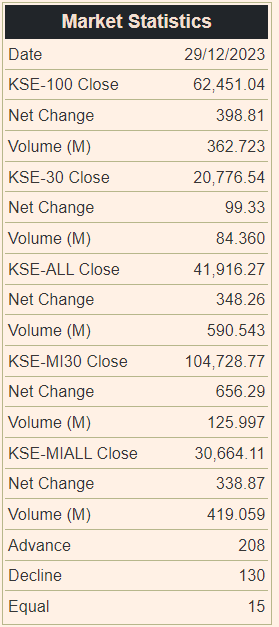

World
Politics
Elon Musk once again becomes richest person in 2023, amassing total of $92 billion

Elon Musk becomes the wealthiest person in the world once again with an astounding $92 billion in revenues so far in 2023, defeating other billionaires.
According to the Bloomberg Billionaires Index, this places Elon Musk at the top of the list, leading the group of the 500 richest people with a combined net worth of $1.5 trillion, which is a return from the $1.4 trillion loss sustained the year before.
These people’s success was quite similar to the performance of tech stocks, which surged to all-time highs in spite of worries about an impending recession, ongoing inflation, rising interest rates, and unstable geopolitical conditions.
The hype around artificial intelligence propelled tech billionaires to a stunning 48% gain and a $658 billion increase in their total wealth.
Among this select group, French luxury tycoon Bernard Arnault lost his position as the richest person in the world to Elon Musk.
With the help of SpaceX and Tesla, the CEO of Tesla Inc was able to recover from the $138 billion loss he suffered in 2022, amassing an additional $95.4 billion by the end of Thursday.
Due to a decline in the demand for luxury goods globally, Musk’s net worth has surpassed Arnault’s by over $50 billion. This is seen in the shares of LVMH Moet Hennessy Louis Vuitton SE.
Major advertisers like Walt Disney, Sony, and IBM severed their ties with the platform in response to a controversy surrounding Elon Musk’s social media activity, which included an antisemitic post. This led to Musk’s remarkable $92 billion wealth gain year-to-date, reaching a valuation of $229 billion.
Modi govt ‘targeted’ prominent journalists with Israeli spyware

The Indian government has been using Pegasus spyware to target prominent journalists, according to a joint investigation by Amnesty International and The Washington Post released on Thursday.
The spyware, developed by Israeli firm NSO Group and sold to governments worldwide, allows access to a phone’s messages, emails, photos, call recordings, location data, and even the phone’s camera.
The spyware used both “IP addresses as well as domain names to reach its targets,” according to the National Herald, an Indian newspaper.
There has been enough research published in the field of cyber security since a rival leaked the Pegasus user handbook in 2016 to enable forensic analyses.
As domain names are normally sold for a minimum of a year, the spyware was also typically employed for several months of target surveillance.
The investigation revealed that journalists Siddharth Varadarajan of The Wire and Anand Mangnale of The Organized Crime and Corruption Reporting Project were among those targeted with the spyware on their iPhones, with the latest known case occurring in October, AFP reported.
“Our latest findings show that increasingly, journalists in India face the threat of unlawful surveillance simply for doing their jobs, alongside other tools of repression including imprisonment under draconian laws, smear campaigns, harassment, and intimidation,” said Donncha O Cearbhaill, Head of Amnesty International’s Security Lab.
While India’s government did not immediately respond, it denied similar accusations in 2021 that it used Pegasus spyware to surveil political opponents, activists and journalists.
Indian media reported last month that the country’s cyber security unit was investigating allegations by opposition politicians of attempted phone tapping after they reported receiving Apple iPhone warnings of “state-sponsored attackers”.
In that case, Ashwini Vaishnaw, the information and technology minister, said the government was “concerned” by the complaints.
Russia blasts off new military satellite into orbit in line with space ambitions
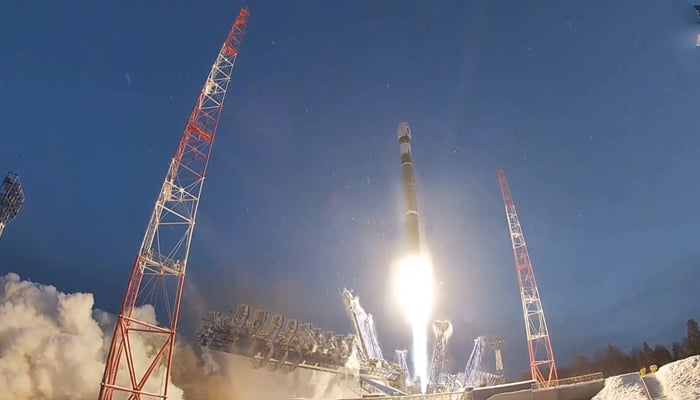
Months after encountering a setback in landing on the lunar soil, Russia successfully deployed a new military satellite into the earth’s orbit after sending several devices used for defence purposes earlier, officials in Moscow said Wednesday.
The satellite was launched by the Russian Aerospace Forces (RAF) Soyuz-2.1b rocket, according to the defence ministry.
It noted: “On December 27 at 10:03 am combat crews of the RAF space forces conducted a launch of a light-class Soyuz-2.1b rocket with a space device in the interest of the Russian Defence Ministry, from the state testing cosmodrome of the Russian Defence Ministry in Arkhangelsk region (Plesetsk).”
According to the military officials, the lift-off and the rocket’s voyage to its targeted place had gone off without a hitch and the whole process was monitored by an automated ground-control complex.
“A stable telemetry link has been established and maintained with the spacecraft,” the ministry stated adding that the onboard systems were operating normally.
A similar launch was conducted by the Soyuz-2.1b rocket which carried military devices into the earth’s orbit in October.
The defence officials did not provide any information about the purposes and the total number of devices deployed outside Earth.
The Russian space agency Roscosmos mentioned that total 67 launches were conducted using Soyuz-2.1b rockets between December 27, 2006 and November 25, 2023. As many as some 577 devices have been delivered into the space.
In late August, Russia blasted off its lunar lander Luna-25 mission to the moon which failed achieve stated objectives. It crashed on the moon after an unsuccessful orbital manoeuvre on August 19.
It was Russia’s first lunar mission since 1976, marking a significant setback to the Russian space programme overseas, however, Moscow vowed to pursue the space ambitions despite failures.
The mission’s failure sparked concerns about the condition of Russia’s space programme, which has been beset by problems ever since the Soviet Union fell apart in 1991.
The Kremlin’s response, however, reveals a determination to move further in the international space competition despite this setback.
In a call with reporters, Kremlin spokesman Dmitry Peskov said: “This is not a reason to despair, nor to tear our hair out. This is another reason to analyse the causes (of the failure) and eliminate them next time.”
Israel kills Iran’s senior general Razi Moussavi: IRGC
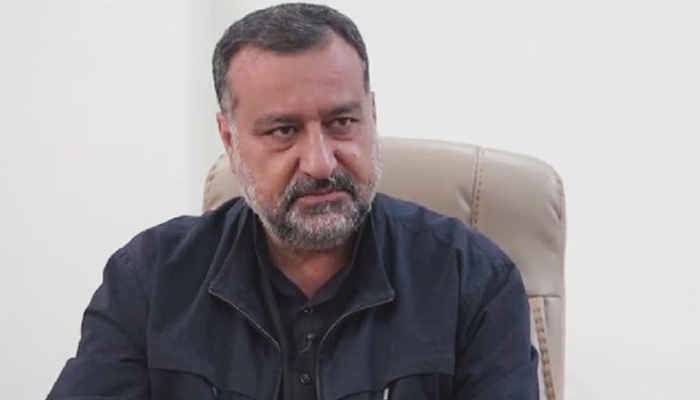
Senior general with Iran’s Revolutionary Guards, Razi Moussavi, was killed Monday by an Israeli strike in Syria, the military force said, vowing to avenge “this crime”.
Iranian state media also reported the death of Moussavi, describing him as “one of the most experienced advisors” of the Quds Force, the foreign arm of the Islamic Revolutionary Guard Corps (IRGC).
There was no immediate comment from Israel, which has repeatedly said it will not allow arch-enemy Iran to expand its presence in Syria.
Moussavi “was killed during an attack by the Zionist regime a few hours ago in Zeinabiyah district in the suburbs of Damascus,” Tehran’s official IRNA news agency reported, using a different name for Sayyida Zeinab south of the Syrian capital.
The general was “active in the field of providing logistical support to the axis of resistance in Syria,” IRNA said, referring to groups backed by Tehran and arrayed against Israel.
The IRGC confirmed Moussavi’s death in a statement, saying he was killed in a “missile attack” and vowed that Israel “will pay for this crime”.
The statement noted that Moussavi was a companion of General Qassem Soleimani, Iran’s revered Quds commander who was killed in Baghdad in a US drone strike in 2020.
Next week Iran will mark the fourth anniversary of Soleimani’s assassination.
‘Three missiles’
Iran’s state TV said Moussavi was targeted by “three missiles” and aired footage showing smoke rising from the area of the strike.
A Britain-based monitor, the Syrian Observatory for Human Rights, reported Israeli strikes on positions used by Iranian groups and by Lebanon’s powerful Tehran-aligned Hezbollah in the Sayyida Zeinab area.
Residents reported hearing loud explosions and seeing columns of smoke rising from farms in the area.
Israel has launched hundreds of air strikes on its northern neighbour since Syria’s civil war began in 2011, primarily targeting Iran-backed forces and Hezbollah fighters as well as Syrian army positions.
Israel, which rarely comments on reported strikes in Syria, has intensified attacks there particularly against Hezbollah since the start of its war against Hamas triggered by the Palestinian group’s October 7 attacks.
The Islamic republic, which supports Hamas financially and militarily, has hailed the attacks as a “success” but denied any direct involvement.
According to an AFP tally based on Israeli figures, about 1,140 people, mostly civilians, were killed in Israel on October 7.
Israel’s relentless retaliatory military campaign in Gaza has killed more than 20,400 people, mostly women and children, according to the health ministry in the besieged Hamas-run territory.
Iran does not recognise Israel and has made support for the Palestinian cause a centrepiece of its foreign policy since the 1979 Islamic revolution.
Russia says 14 dead, 100 injured after Ukraine strikes border city

MOSCOW-Ukraine has carried out a series of deadly air strikes on targets in south-west Russia over the past 24 hours, according to Russian officials.
Russia’s emergency ministry says 14 people including two children were killed and more than 100 injured in the city of Belgorod Saturday. Earlier, Russia’s defence ministry said it had destroyed dozens of missiles and drones fired from Ukraine. The attacks follow Russian strikes on Ukraine which killed 39 people.
Those strikes were described by Kyiv as Russia’s biggest missile bombardment of the war so far against Ukraine.
Ukrainian media – citing intelligence sources – is reporting that more than 70 drones were used in a series of attacks on Russia and only military targets were attacked. They added that a group of drones successfully hit a electronic factory in the Bryansk region used to make Russian military equipment like long-range missiles and anti-aircraft systems.
Russia’s president has been briefed on the attacks, his spokesperson said. An initial statement from the Russian defence ministry on Saturday said 13 missiles were destroyed over the wider region overnight. Later, it said 32 drones had been shot down in the Bryansk, Oryol, Kursk and Moscow regions.
The governor of Bryansk region meanwhile said two villages were targeted and a child, born in 2014, had been killed.
Separately, the governor of nearby Belgorod said the attacks on the region had damaged 55 homes, two private businesses, a football ground, a leisure centre and a pre-school.
Moscow has repeatedly accused Ukraine of being behind drone strikes in recent months, though Ukraine has not claimed responsibility for these.
The strikes come after Russia launched a massive bombardment across Ukraine, killing 39 people and injuring nearly 160. Several cities were hit, including the capital, Kyiv.
Mayor of Kyiv Vitali Klitchsko said on Saturday that at least 16 people were killed in the city, making it the deadliest so far for civilians in the capital.
On Friday evening, an emergency meeting of the UN Security Council overwhelmingly condemned Russia’s renewed mass-bombing campaign in Ukraine and said attacks must stop “immediately”.
Countries including the US, UK and France said hitting civilian infrastructure had violated the international rules of war.
“Rather than peace, Putin chose to mark this holiday season… with an unprecedented number of drone and missile attacks,” US representative to the UN John Kelley said. Russia said Ukrainian air defences were to blame for causing damage to civilian buildings.
US, France, Germany, UK call on Iran to de-escalate nuclear program

The US, France, Germany and the UK on Thursday condemned Iran’s increased production of highly enriched uranium following a recent report.
“We urge Iran to immediately reverse these steps and de-escalate its nuclear program,” the countries said in a joint statement.
According to the report by the International Atomic Energy Agency (IAEA), Iran has increased its rate of production of uranium enriched up to 60% at Natanz and Fordow to levels observed between January and June 2023, which it said represents “a backwards step by Iran and will result in Iran tripling its monthly production rate of uranium enriched up to 60%.”
Iran must fully cooperate with the IAEA to enable it to provide assurances that its nuclear program is exclusively peaceful, and to re-designate the inspectors suspended in September 2023, the statement said.
“We remain committed to a diplomatic solution and reaffirm our determination that Iran must never develop a nuclear weapon,” it added.
Trump wins Michigan state court battle to qualify for primary election ballot

WASHINGTON – Donald Trump scored a victory on Wednesday in his fight against challenges to his eligibility to run for the White House again when Michigan’s top court declined to hear a case seeking to disqualify him from the state’s presidential primary ballot.
The Michigan Supreme Court said it would not hear an appeal from four voters in the state seeking to bar the former president from the Feb. 27 Republican primary for his role in the Jan. 6, 2021, attack on the US Capitol.
The voters argued that Trump, the frontrunner for the 2024 Republican nomination, could not serve as president under a provision in the U.S. Constitution that bars people from holding office if they engaged in “insurrection or rebellion” after swearing an oath to the United States.
“We are not persuaded that the questions presented should be reviewed by this Court,” the justices said in a brief order. Trump in a post on his Truth Social site said that the court “strongly and rightfully denied” what he called a “desperate Democrat attempt” to take him off the ballot in Michigan. The Michigan ruling contrasts with a decision by Colorado’s top court last week to disqualify Trump under the same constitutional provision, known as Section 3 of the 14th Amendment. Trump has vowed to appeal the Colorado ruling to the U.S. Supreme Court.
Trump has been indicted in both a federal case and in Georgia for his role in trying to overturn the 2020 election but he has not been charged with insurrection related to the Jan. 6 attack. A ruling by the US Supreme Court could resolve the issue of Trump’s eligibility nationwide to run in the 2024 presidential race. A lawyer for the voters cast the ruling as procedural, noting that the court allowed them to revive their case for the November 2024 general election.
ECONOMY (WORLD)

Pakistan (Politics)
ECP files review petition against PHC decision on PTI ‘bat’ symbol
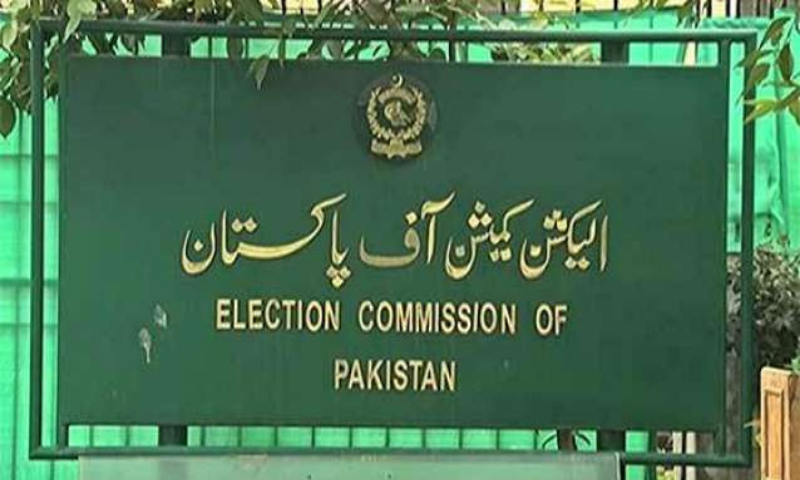
The Election Commission of Pakistan (ECP) on Saturday filed a review petition at the Peshawar High Court (PHC) against its single bench ruling on Pakistan Tehreek-e-Insaf’s (PTI) iconic electoral ‘bat’ symbol.
On December 26, the high court announced the verdict on PTI’s petition challenging the ECP’s verdict, which had declared the party’s intra-party polls “illegal” and stripped it of using the ‘bat’ symbol.
While announcing a reserved verdict, the PHC suspended the ECP’s order and restored the party’s ‘bat’ symbol till a final decision on the petition. The court also stated that a double bench will hear the matter after winter vacations.
In its petition, the ECP has requested the court to review the PTI’s intra-party elections and its decision related to the election symbol.
The Election Commission, in its petition, requested the court to fix the plea before a division bench in the larger interest of the public. It said that the ECP is charged with the duty to conduct elections honestly, justly fairly and in accordance with law.
The petition read that Article 218(3) allows the electoral body to organise and conduct the elections, adding that the ECP is also responsible for making all necessary arrangements ahead of the polls.
The plea said that the petitioners have sought “interim relief” for the suspension of ECP’s order as well as for the publication of an intra-party certificate on its website along with the restoration of the ‘bat’ symbol.
The ECP prayed the court to recall the “interim relief” granted by the single bench on December 26.
AC approves Fawad Chaudhry’s six-day physical remand in graft case

The accountability court on Saturday extended Fawad Chaudary’s physical remand in an embezzlement case by six days.
Accountability court judge Muhammad Bashir held the hearing in the case in which Fawad Chaudhary is accused of embezzlement in Jhelum construction projects.
NAB prosecutor Sohail Arif and petitioner’s counsel Faisal Chaudhry were present in court.
The NAB prosecutor said, “14 days of physical remand was requested, but 10 days of physical remand was allowed. We requested the record of banking transactions which was dubious.”
The NAB prosecutor said the contractor also had been summoned on Jan 2. He said Fawad Chaudhry’s further remand was required.
Fawad Chaudhry said: “We have been seeing unfair treatment for a long time. Normally court determines the jurisdiction. See my warrant; I have been charged with four cases.”
“I was accused of exerting influence on the contractors as a minister,” he said. But the fact was that the project belonged to the PSDP, which was approved. It was my duty to convey the demands of the people to the government.”
He said, “If I will not work for the people of my area, it will not be good politics. The project in question was approved by the provincial and federal governments.”
He also gave reference of Ahsan Iqbal’s Narowal Sports Complex case.
Fawad Chaudhry said it’s not the jurisdiction of NAB to open an inquiry. “I am not Emperor Akbar who has immense power and influence,” he remarked.
The NAB prosecutor said in court that the purpose of physical remand was not only to prove the case but also to bring out the facts. Fawad Chaudhry should undertake work of his area but according to law.
He said if there’s embezzlement in any project, NAB could take notice.
Fawad Chaudhry’s lawyer Faisal Chaudhry said, “If there is a record of banking transactions, then present it before the court. Let me speak; otherwise, I will move high court.”
He opposed the physical remand of Fawad.
The prosecutor said NAB had placed the banking transactions before the court. However, Faisal Chaudhry insisted that Fawad’s banking transactions had not been given to them.
Chinese group launches three Sino-Pak dual diploma programmes

ISLAMABAD – Chinese company TANG Int’l Education Group unveiled three China-Pakistan dual diploma programs at Aligarh Institute of Technology (AIT), Karachi.
The Institute will collaborate with Fujian Polytechnic of Information Technology, China for the programs and provide training under CCTE Model (Chinese + Commerce Culture + Training + Employment).
“Under the three 3-year diploma programmes, 70 AIT students will have the chance to study in China on fully-funded scholarships,” Eng Mansoor-ul-Hassan Siddiqui, Regional Director of TANG Pakistan, told Gwadar Pro.
He said that the admission process has been completed and the programme will start soon. The newly- launched programmes cover the disciplines of IoT, Mechatronics Technology and Electronics.
Earlier, TANG has launched three Sino-Pak dual diploma programs at AIT in electrical, mechanical and computer science technologies.
COAS pledges to rein in mafias in unison with nation
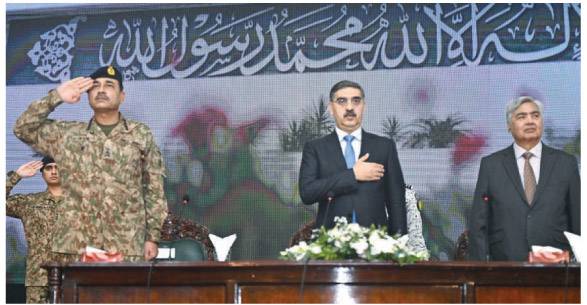
Army chief Gen Munir says social media being used to create environment of chaos, despair, and panic giving impression that State is losing its writ n Pakistan is endowed with immense potential and abundant resources n PM says agriculture holds major importance for socio-economic development.
ISLAMABAD – Chief of Army Staff (COAS) Gen Syed Asim Munir has said that social media is rife with fabricated claims against the state of Pakistan and pledged to combat these mafias in unison with the nation, underlining the critical importance of national unity and progress.
“Social media is being used to create an environment of chaos, despair, and panic. Through fake news, an impression is being created that the state is losing its [writ],” the army chief said in an address to the National Farmers Convention here yesterday.
Like many countries, Pakistan is also grappling with the growing challenge of fake news on social media, masquerading as truths and spreading like wildfire. The reports, despite being unfounded, are fuelled by emotional appeals and designed to existing societal divisions, he said.
A detailed report issued earlier this year by EU DisinfoLab showed that Indian media outlets have also been part of a smear campaign against Pakistan by quoting non-existent organisations, journalists, and bloggers.
The convention was also addressed by Caretaker Prime Minister Anwaar ul Haq Kakar while federal ministers, agricultural experts and senior government officials were also present there.
Gen Asim Munir said that “rumours” and “negative impressions” were being spread about Pakistan. “But you should know that only two states were established on the bases of the Kalima: the state of Madina and Pakistan,” COAS Munir said, emphasising divine backing to the country.
“All types of mafia will be crushed together with the nation,” the army chief added. The COAS, who was the chief guest at the event, emphasised that the farmers were the backbone of the country’s agriculture sector. “It’s your untiring hard work, toil and determination that plays a pivotal role in ensuring food security for millions of Pakistanis. You make us and the entire nation proud,” he added. He said that the climate change and water scarcity were realities that challenged Pakistan’s food security and necessitated use of technology and close government-public collaboration as being done under SIFC. “Pakistan is endowed with immense potential and abundant resources. Together, we will navigate through these challenging times, by the grace of Allah, and attain our goals across every sector, InshaAllah,” he added. The COAS said that the dividends of all initiatives by SIFC would help Pakistan come out of the economic crisis. “United, we as a resilient nation will lead Pakistan towards a progressive and prosperous future, InshaAllah”, he added. In his address on the occasion, the Prime Minister said that agriculture held immense importance for socio- economic development of the country at the grassroots level. He appreciated the collaborative work of ministries and departments for achieving various milestones under the umbrella of Special Investment Facilitation Council (SIFC) and stressed the need to expedite various initiatives, according to a press release issued by the PM Office’s Media Wing.
Election 2024: ECP revises various stages of schedule for reserved seats

The Election Commission of Pakistan Friday revised various stages of the schedule for reserved seats for women and non-Muslims in the national and provincial assemblies.
As per the revised schedule issued by the ECP, the last date for the scrutiny of the nomination papers is January 13, while the last date for filing of appeals against decisions of the returning officer is January 16, 2024.
The revised list of candidates will be published on January 20. Candidates can withdraw their papers by the 22nd of the next month while the final list of the contesting candidates will be released on January 23.
On December 15, the ECP had issued the much-awaited schedule for the general polls, set to take place on February 8, 2024, following the Supreme Court’s order. The polling process began on December 19, when the returning officer (RO) issued a public notice, while the ECP also resumed the training for the ROs and district returning officers (DROs).
The election programme also applies to the reserved seats for women and non-Muslims in the national and four provincial assemblies of Punjab, Sindh, Khyber Pakhtunkhwa, and Balochistan.
Pakistan releases Rs140 bn to power plants on IMF condition

Following the International Monetary Fund’s (IMF) condition, Pakistan has released Rs140 billion to the government-run power plants to address circular debt in the energy sector.
As per details, Pakistan has to slash the circular debt of the energy sector by Rs400 billion during FY2023-24 as per the International Monetary Fund’s condition.
The finance ministry document showed that Rs57 billion has been released to Karachi-Electric to address the circular debt issue. Pakistan is likely to release Rs260 billion to the power sector and Rs65 billion to the gas companies in 2023-24, the sources said.
Pakistan is currently in the IMF’s SBA program and trying its best to meet the requirements of the next staff-level agreement.
Earlier, the Pakistani government gave assurance to the International Monetary Fund (IMF) on maintaining the power sector’s circular debt at Rs2.31 trillion.
ECONOMY (PAKISTAN)
